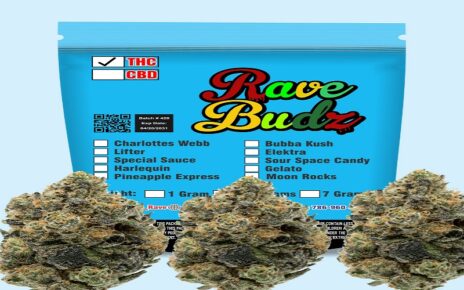Many people get munchies after smoking marijuana. However, you might be unsure whether you should expect to get the same effect from CBD. After all, while CBD can be found in cannabis plants, it is a non-psychoactive substance that substantially differs from THC.
Nowadays, you can find CBD in many products on the market. If you are searching for the right way to add CBD into your diet, you can choose from best-selling CBD gumdrops and lollipops to CBD oils and tinctures. Each of these options can have a different effect on your body, making the decision of what CBD product you should take that much more challenging.
Here, we take a closer look at CBD and its effects. We explain what CBD is, how it works, and if it can make you hungry and affect your weight. Let’s get started.
What is CBD and Where Does it Come From?
Before we get into the details of how CBD works, let’s take a closer look at what CBD is.
CBD is a natural substance found in hemp plants. It’s also known as cannabidiol. As a matter of fact, it’s one of the most important components in hemp plants, where it can be found in high amounts. Also, CBD is one of over 85 cannabinoids that can be found in cannabis plants.
Cannabis has been used for thousands of years to treat many conditions, including pain, inflammation, anxiety, and seizures. Currently, CBD is also being studied for its potential to reduce cancer cell proliferation and tumor growth. In addition, CBD has been shown to have positive effects on treating insomnia and mood disorders, such as depression and anxiety.
Meanwhile, CBD is non-intoxicating and doesn’t cause any mind-altering effects. However, some users might feel sleepy after consuming CBD, mainly because of its relaxing effects. As a matter of fact, the reason for its popularity among those who use cannabis for medical reasons is because it has fewer side effects than THC.

How Does CBD Work?
The way CBD works is through the endocannabinoid system (ECS). The ECS is a system within your body that produces cannabinoids and helps regulate many functions, including appetite, sleep, mood, memory, immune function, and pain.
CBD interacts with the ECS to help improve overall health and well-being. For example, CBD’s interaction with the ECS can help treat depression by reducing inflammation and stimulating brain cells to regulate emotions.
In addition, some studies suggest that CBD can help reduce anxiety. That’s because CBD interacts with receptors in your brain to promote relaxation. As a matter of fact, many people use CBD instead of traditional medicine to help reduce stress and anxiety.
How Does CBD Affect Your Appetite?
CBD intake might influence the levels of your ‘hunger hormones.’ Specifically, the levels of ghrelin and leptin.
Ghrelin is referred to as the “hunger hormone” because it stimulates appetite. Meanwhile, leptin is released when your body has stored enough fat. When this happens, people tend to feel less hungry. However, if your body doesn’t have enough leptin to suppress ghrelin’s effects, then you’ll keep feeling hungry.
On the other hand, there are several studies that show how CBD can help reduce appetite. For example, one study showed that CBD reduced the levels of ghrelin in rats, but more research is needed to determine whether CBD can actually help people lose weight.
That being said, there are several factors that can influence CBD’s impact on your appetite.
First, it’s important to consider the dosage that you consume. Studies have shown that different dosages of CBD can affect your appetite. For example, one study showed that higher doses of CBD caused greater increases in appetite compared to smaller doses.
On the other hand, if you are taking CBD oil, then it’s best to start slowly and work your way up. This will help you avoid any unpleasant side effects, such as feeling nauseous or experiencing a headache. In addition, it’s also important to remember that CBD is fat soluble. Therefore, it’s best to pair it with food or add it to a smoothie.
Second, you should also consider the form of CBD that you are taking. For example, CBD edibles can have a different effect on your appetite compared to CBD oil tinctures.
Third, it’s important to note that other components in CBD products can have an effect on your appetite. For example, some oils also contain THC, which can cause you to feel hungry. However, most products contain small amounts of THC and are non-intoxicating. Thus, they are unlikely to make you feel hungry.
CBD is often sold in combination with other cannabinoids like THC and terpenes that may have an effect on your appetite. Try out different products and opt for the one that works best for you.
Finally, be sure to keep an eye out for any unpleasant side effects after you take CBD. CBD has been known to cause dry mouth or nausea in some individuals. If this happens to you, then try taking a smaller dose, eating before or after you take CBD, or taking CBD with food.
Conclusion
At the end of the day, the effects of CBD on appetite are still being studied, and they might be different for various people.
It might be possible that CBD is one of the best solutions for people who struggle with weight issues. However, before you start taking CBD for weight loss, it’s best to consult with your doctor. This is because CBD can have a different effect on each person.
Hopefully, this article has helped you understand how CBD works and whether it can help you lose weight. Are you ready to try CBD?
visit us : https://www.tathit.com/uncommon-natural-bath-soaks-worth-trying-this-autumn/


